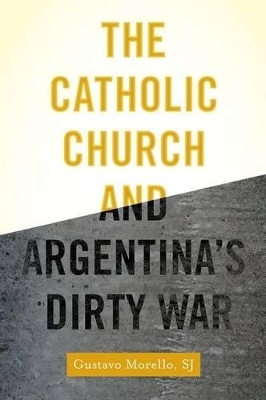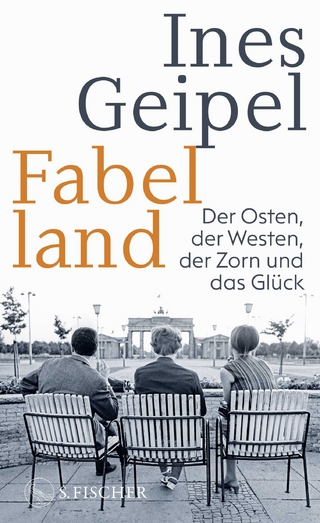
The Catholic Church and Argentina's Dirty War
Seiten
2015
Oxford University Press Inc (Verlag)
978-0-19-023427-0 (ISBN)
Oxford University Press Inc (Verlag)
978-0-19-023427-0 (ISBN)
Drawing on interviews with victims of forced disappearance, documents from the state and the Church, as well as field work and participant observation, The Catholic Church and Argentina's Dirty War explores how the Argentine government deployed the legitimating discourse of Catholicism to justify terrorism in the case of La Salette missionaries.
On the afternoon of August 3rd, 1976, Fr. James Weeks and five seminarians of the Missionaries of La Salette living with him in Córdoba, Argentina's second largest city, were kidnapped. A mob burst into their house claiming to be Catholic police looking for "subversive fighters." The seminarians were "disappeared" for a few days, then jailed and tortured for two months before eventually being exiled to the United States.
Since the election of the first Latin American pope, tension regarding the role that the Catholic Church played in Argentina's Dirty War has resurfaced. Critics claim that the Catholic Church had done nothing to alleviate the situation, even acting as an accomplice to the dictators. Leaders of the Catholic Church on the other hand claimed they did not fully know what was going on, but tried to help when they could. Many scholars and the general public have long assumed that the historical context of Argentina was similar to other Latin American countries. On the contrary, unlike countries such as Chile and Brazil, Argentina's political violence was seen as acceptable tools of political involvement; both the guerrillas and the military government were able to gain popular support for their fights.
Employing a rigorous methodology, The Catholic Church and Argentina's Dirty War contributes to the understanding of the historical and sociopolitical contexts of Argentina, as well as the role of Catholics under State Terror. The book uses the La Salette missionaries as a case study, drawing on interviews with victims of forced disappearance, documents from the State and the Church, field observation, and participant observation in providing a deeper view of the relationship between Catholicism and state terrorism during Argentina's Dirty War.
On the afternoon of August 3rd, 1976, Fr. James Weeks and five seminarians of the Missionaries of La Salette living with him in Córdoba, Argentina's second largest city, were kidnapped. A mob burst into their house claiming to be Catholic police looking for "subversive fighters." The seminarians were "disappeared" for a few days, then jailed and tortured for two months before eventually being exiled to the United States.
Since the election of the first Latin American pope, tension regarding the role that the Catholic Church played in Argentina's Dirty War has resurfaced. Critics claim that the Catholic Church had done nothing to alleviate the situation, even acting as an accomplice to the dictators. Leaders of the Catholic Church on the other hand claimed they did not fully know what was going on, but tried to help when they could. Many scholars and the general public have long assumed that the historical context of Argentina was similar to other Latin American countries. On the contrary, unlike countries such as Chile and Brazil, Argentina's political violence was seen as acceptable tools of political involvement; both the guerrillas and the military government were able to gain popular support for their fights.
Employing a rigorous methodology, The Catholic Church and Argentina's Dirty War contributes to the understanding of the historical and sociopolitical contexts of Argentina, as well as the role of Catholics under State Terror. The book uses the La Salette missionaries as a case study, drawing on interviews with victims of forced disappearance, documents from the State and the Church, field observation, and participant observation in providing a deeper view of the relationship between Catholicism and state terrorism during Argentina's Dirty War.
Gustavo Morello, SJ is Assistant Professor of Sociology at Boston College.
Acknowledgments ; Preface ; Abbreviations ; Chapter 1: Introduction ; Chapter 2: "We are here to serve!" ; Chapter 3: Who the La Salettes were ; Chapter 4: Committed Catholics and the machinery of terror ; Chapter 5: The long night ; Chapter 6: "I was in Hell" ; Chapter 7: A race against time ; Chapter 8: "Aren't we true Catholics?" ; Chapter 9: Varieties of Catholicism ; References
| Erscheint lt. Verlag | 10.9.2015 |
|---|---|
| Verlagsort | New York |
| Sprache | englisch |
| Maße | 155 x 236 mm |
| Gewicht | 454 g |
| Themenwelt | Geschichte ► Allgemeine Geschichte ► Zeitgeschichte |
| Geisteswissenschaften ► Geschichte ► Regional- / Ländergeschichte | |
| Geisteswissenschaften ► Religion / Theologie ► Christentum | |
| Sozialwissenschaften ► Soziologie | |
| ISBN-10 | 0-19-023427-X / 019023427X |
| ISBN-13 | 978-0-19-023427-0 / 9780190234270 |
| Zustand | Neuware |
| Haben Sie eine Frage zum Produkt? |
Mehr entdecken
aus dem Bereich
aus dem Bereich
Gewalt, Umwelt, Identität, Methode
Buch | Softcover (2024)
Spector Books OHG (Verlag)
36,00 €
der Osten, der Westen, der Zorn und das Glück
Buch | Hardcover (2024)
S. Fischer (Verlag)
26,00 €


